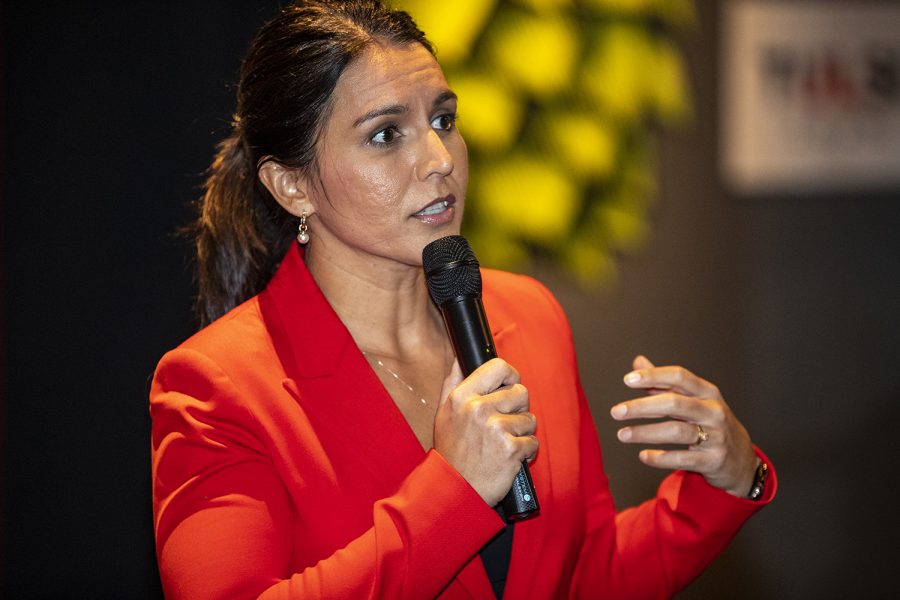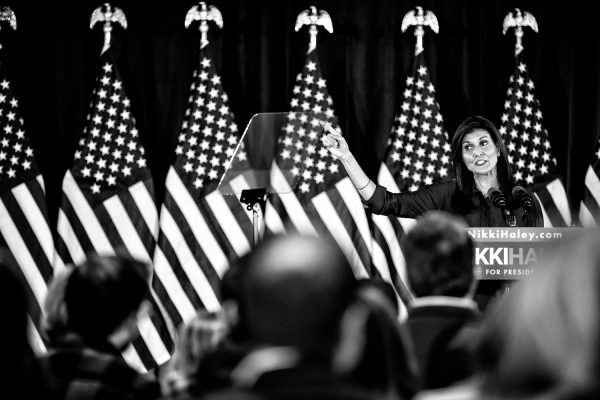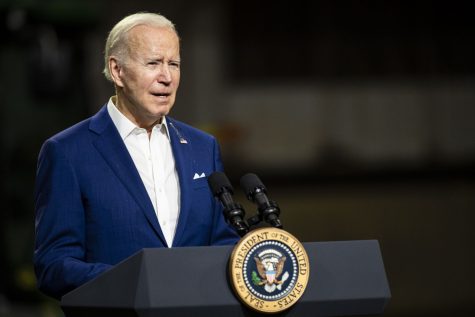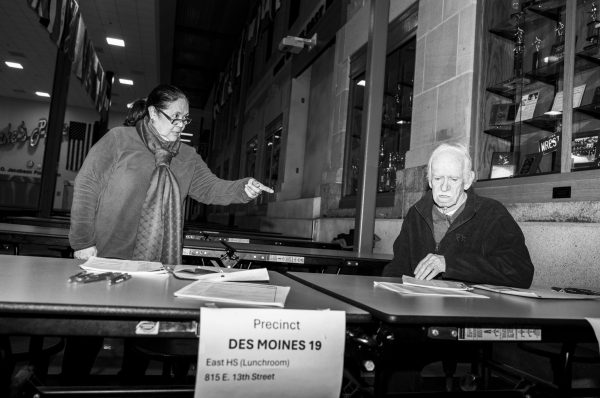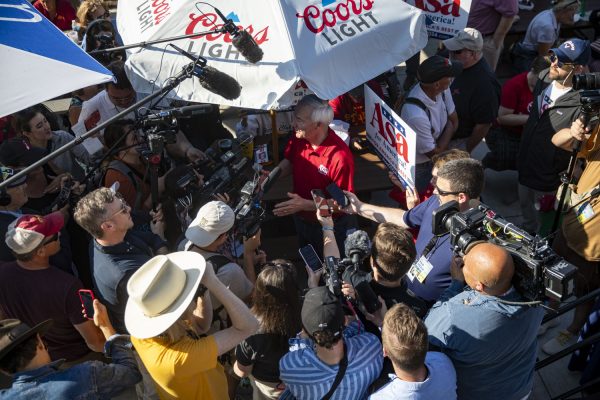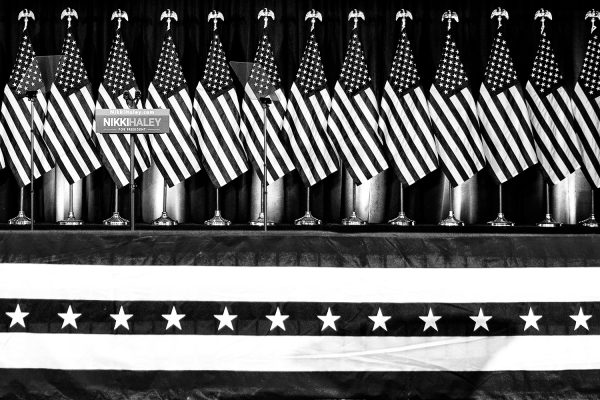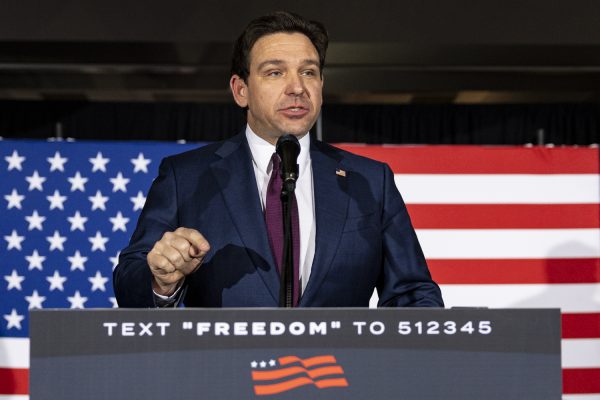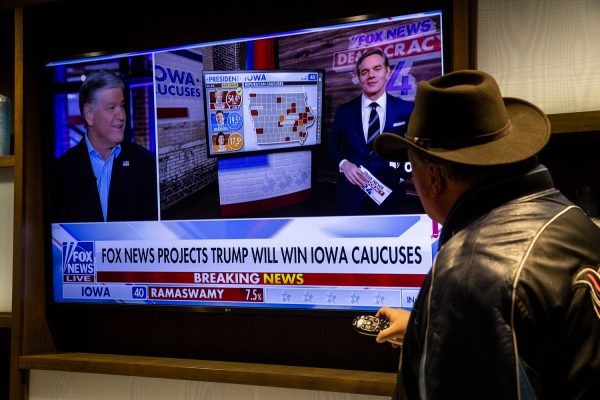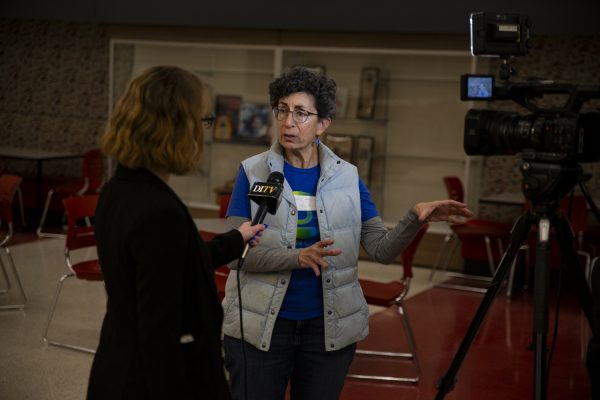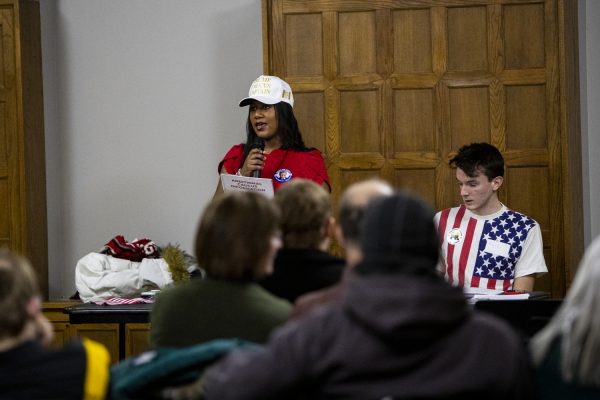Foreign policy not at the forefront of Democratic presidential campaigns – yet
In the early stages of presidential campaigns, it’s common for foreign policy to not be a key talking point, according to a campaign expert. In this election cycle, news from Washington D.C. is dominating a lot of conversations.
Rep. Tulsi Gabbard, D-Hawaii, speaks during a campaign event at the Big Grove Taproom in Iowa City on Monday Feb. 11, 2019. Rep. Gabbard visited Des Moines, Fairfield, and Iowa City on a tour of Iowa cities as she begins her 2020 presidential bid.
June 17, 2019
In the early stages of the 2020 Democratic presidential races, most candidates are avoiding foreign-policy conversations in their stump speeches, instead sticking to messages revolving around the economy and unseating President Trump.
Among the 23 Democratic candidates, there is a mix of candidates who have foreign-policy experience and those who don’t. Former Vice President Joe Biden, and those who have served in the U.S. Senate for a longer period of time, such as Bernie Sanders and Elizabeth Warren, will have more of that foreign-policy experience, said Timothy Hagle, a University of Iowa political science associate professor.
Hagle, an expert in political campaigns, said campaigning on domestic issues, or “kitchen table talk,” is common in the beginning stages of a campaign. However, in 2004, when the U.S. was fighting a war in Iraq, he said foreign-policy conversations were more prevalent in presidential campaigns.
Often, Hagle said, national news tends to have a spot in campaigns as well. He pointed to some Democrats in Congress calling for Trump’s impeachment in response to the investigation into Russian meddling in the 2016 presidential elections.
“This is a campaign where the things in Washington, D.C., seem to be dominating,” Hagle said. “[Candidates] aren’t often asked about this — they’re asked about jobs, and the economy, and so forth, so that’s where you see that disconnect (with voters).”
The ongoing trade disputes with China, Mexico, and Canada have been touched on in Iowa by such candidates as Biden and Sanders. The trade disputes have had a spot in national news and directly affect many Iowa farmers.
Hagle predicted that after the first couple rounds of primary debates, candidates such as Biden who do have more experience may try to differentiate themselves from the pack by speaking more about foreign policy.
However, one Democratic candidate who has campaigned largely on foreign-policy issues is Hawaii Rep. Tulsi Gabbard, an Iraq war veteran and member of the U.S. House Armed Services Committee.
Gabbard’s speech stood out from other 18 Democratic candidates at the Hall of Fame Celebration in Cedar Rapids as being the only one dominated by a talk about the “cost of war” and how she thinks the U.S. is now currently in a nuclear arms race.
“So as president and commander-in-chief, I will end our long-standing foreign policy on waging wasteful regime-change wars that have taken so many lives, that have cost us trillions of taxpayer dollars — that have undermined our national security,” Gabbard said on June 9 in Cedar Rapids.
Chris Laursen, an Iowa grassroots organizer for the Gabbard campaign, said she understands the cost of having American interest in such countries as Venezuela and Syria.
“The suggestion is her anti-intervention in regime-change wars is some Republican talking point,” Laursen said. “It’s a refusal to play identity politics and not walk the party line.”



